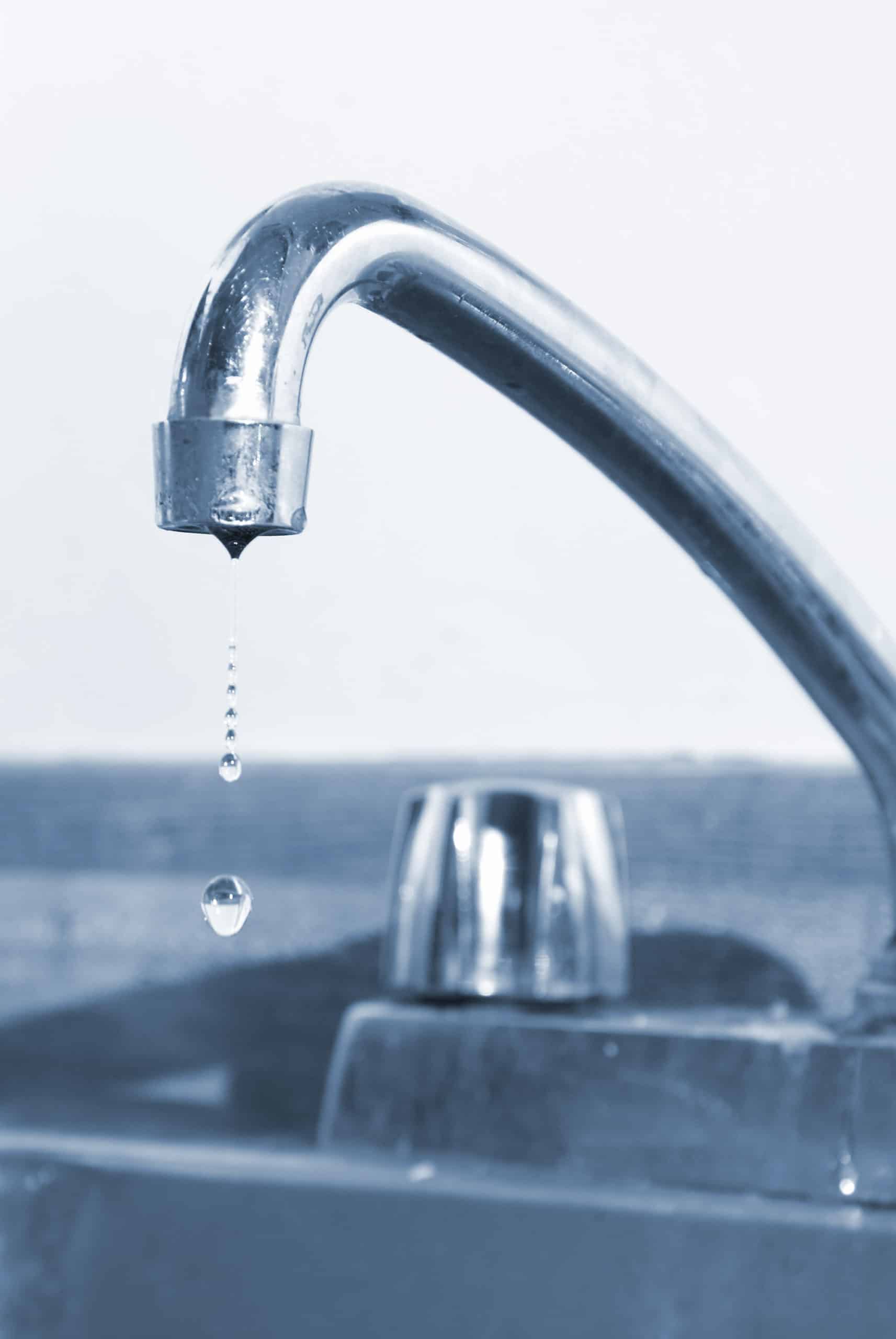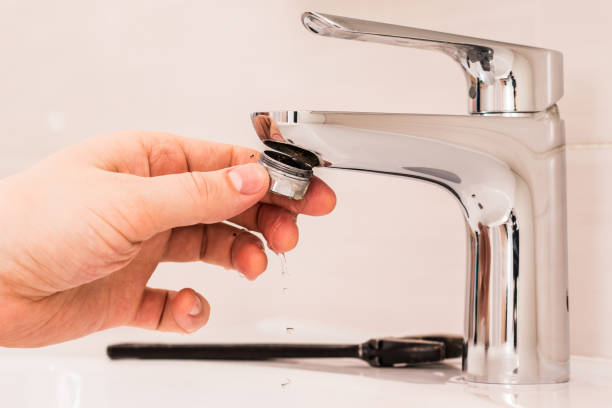Uncovering the Significance of Correcting a Leaking Faucet
Uncovering the Significance of Correcting a Leaking Faucet
Blog Article
This post on the next paragraphs pertaining to What Causes Leaky Faucets & How To Fix Them is without a doubt attention-grabbing. Read it yourself and decide what you think of it.

Dripping faucets may feel like a small inconvenience, yet their effect surpasses just the aggravation of the noise. From wasting water to incurring unnecessary financial costs and health risks, neglecting a dripping tap can cause various consequences. In this post, we'll look into why it's crucial to resolve this typical house concern without delay and successfully.
Wastage of Water
Environmental Influence
Leaking faucets contribute significantly to water wastefulness. According to the Environmental Protection Agency (EPA), a single tap trickling at one drip per second can waste greater than 3,000 gallons of water annually. This not just stress water resources yet also influences communities and wild animals based on them.
Step-by-Step Overview to Repairing a Dripping Tap
Tools Called for
Before attempting to deal with a leaking tap, gather the needed devices, including a flexible wrench, screwdrivers, substitute components (such as washing machines or cartridges), and plumber's tape.
Common Faucet Issues and Their Solutions
Recognize the sort of faucet and the particular problem creating the drip. Common problems include worn-out washing machines, rusty shutoff seats, or malfunctioning O-rings. Describe supplier guidelines or online tutorials for step-by-step guidance on repairs.
Financial Costs
Enhanced Water Bills
Beyond the environmental impact, dripping taps can blow up water costs considerably. The collected wastefulness with time converts into higher energy expenditures, which might have been prevented with timely fixings.
Possible Building Damages
Furthermore, long term dripping can lead to harm to fixtures and surface areas bordering the faucet. Water build-up can cause discoloration, corrosion, and also structural concerns if left unattended, leading to additional repair service expenses.
Health Worries
Mold And Mildew and Mildew Development
The constant existence of dampness from a dripping tap creates an ideal atmosphere for mold and mildew and mildew growth. These fungi not just jeopardize interior air quality however likewise present health and wellness threats, especially for individuals with respiratory conditions or allergies.
Waterborne Diseases
Stagnant water in dripping taps can come to be a breeding place for microorganisms and various other microorganisms, boosting the danger of waterborne illness. Pollutants such as Legionella germs thrive in stationary water, possibly causing major illnesses when consumed or inhaled.
DIY vs. Specialist Repair service
Advantages and disadvantages of DIY Fixing
While some may try to repair a dripping tap themselves, DIY fixings come with their very own set of difficulties. Without proper understanding and devices, DIY efforts can exacerbate the problem or bring about incomplete repair services, extending the trouble.
Benefits of Employing a Specialist Plumber
Working with a professional plumber makes sure that the underlying source of the dripping faucet is dealt with successfully. Plumbing professionals have the knowledge and devices to identify and fix tap problems efficiently, saving time and minimizing the risk of further damages.
Ecological Duty
Specific Payment to Preservation
Taking obligation for repairing dripping faucets straightens with more comprehensive initiatives towards water conservation and environmental sustainability. Every person's activities collectively make a significant influence on protecting precious sources.
Sustainable Living Practices
By prioritizing punctual repair work and adopting water-saving routines, individuals add to lasting living practices that profit both present and future generations.
Safety nets
Regular Upkeep Tips
To prevent leaking taps, carry out regular maintenance such as cleansing aerators, checking for leaks, and replacing damaged parts without delay. Additionally, think about mounting water-saving devices or upgrading to a lot more efficient fixtures.
Significance of Prompt Services
Addressing trickling taps as quickly as they're noticed prevents additional water waste and prospective damage, eventually conserving both water and money over time.
Effect On Property Value
Perception of Well-Maintained Residential Or Commercial Property
Maintaining a home in good condition, including dealing with maintenance concerns like trickling faucets, enhances its regarded worth and charm among potential customers or occupants.
Influence on Resale Worth
Qualities with well-kept plumbing fixtures, consisting of faucets, command greater resale values in the property market. Dealing with trickling faucets can contribute to a favorable impression throughout residential or commercial property examinations and negotiations.
Verdict
Addressing a leaking tap goes beyond simple ease; it's an important action towards conserving water, decreasing economic costs, and protecting health and wellness and property. Whether through DIY repair work or expert help, doing something about it to fix dripping faucets is a small yet impactful way to promote responsible stewardship of sources and add to a healthier, more sustainable future.
How to Fix a Leaky Faucet: Step-by-Step Repair Guide
A leaky faucet may seem like a simple annoyance, but if it's not fixed promptly, that leak could cost hundreds to potentially thousands. From water damage to mold, mildew, and high water bills, even a tiny leak can be catastrophic if left unattended. Damage like this can even affect the overall value of your home, so it's important to take the right approach for leaky faucet repair. You may need the help of a plumber in some cases, but we've got a few tips you can try on how to fix a leaky faucet before calling the pros.
Four Faucet Types
When you're learning how to fix a leaky faucet, the first step is knowing what kind of faucet you're working with! There are four common types.
Cartridge Faucets
Cartridge faucets come in one- or two-handled varieties. In one-handled cartridge faucets, hot and cold water combines in a single cartridge. In the two-handled versions, hot and cold water are controlled separately and mixed in the faucet.
Ball Faucets
Ball faucets have a single lever you push up and down to adjust the pressure and rotate to change the temperature. A slotted metal ball controls the amount of water allowed into the spout.
Compression Washer Faucets
They're the oldest type of faucet, but they're still used in many homes — especially older ones. Compression faucets have two separate handles that, when turned, raise or lower the washer that seals a water valve. This valve stops water from flowing through the faucet when it is turned off.
Disc Faucets
Disc faucets rarely need to be repaired due to their maintenance-free design. The water flow is controlled by two discs — the upper one raises and lowers against a fixed lower disc, creating a watertight seal. If your disc faucet starts leaking, you may need to replace the seals or clean residue buildup from the inlets.
Fixing a Leaky Faucet
Step 1: Turn Off the Water
Whether you're learning how to fix a leaky bathtub faucet or how to fix a leaky kitchen faucet, always turn off the water supply to your working area when you're fixing a leak. The last thing you want is a flood added to your list of things to fix.
Look for the shutoff valves below your sink or around the tub and turn them clockwise to stop the water flow. If your faucet doesn't have shutoff valves, you may need to turn off the water for the whole house. Check to make sure it's off by turning the faucet on. If nothing comes out, you're ready to start the repair.
Step 2: Take Apart the Faucet
How you disassemble your faucet depends on the type of fixture you have. You can use a flathead screwdriver to remove the caps on top of the handle or handles for cartridge and compression faucets. Inside, you should see handle screws. Unscrew these with a screwdriver to remove the handle.
Disc- and ball-style faucets will typically have an inlet screw near the handle, and removing that will reveal the interior of the faucet.
Detach the Valve Stem
For cartridge- and compression-style faucets, you'll see the inner valve stem or cartridge once you remove the faucet handles. If you have a compression faucet, unscrew the brass valve stem. If you have a cartridge faucet, pull out the cartridge. If your cartridge has been in place for a while, it may require some tools or extra force to remove it due to mineral deposits.
Examine and Replace Parts
Once you've removed the parts, check them out to confirm what needs to be replaced. You may see corroded rubber washers, O-rings, stems, or cartridges. On a ball-style faucet, check the seats and springs for damage.
If you need to repair a leaky disc faucet, check the inlet and seals on the lower disc.
Once you determine what parts must be replaced, visit your local hardware store. Bring the damaged parts with you to ensure you can purchase the correct components to replace them.
Clean Valves and Faucet Cavity
If you've removed a stem or cartridge, you may notice mineral buildup in the faucet's threads. Use white vinegar to clean the valve seat by soaking it for a few minutes, then scrub it away with a soft toothbrush and rinse with warm water. You can also clean the interior of the faucet in the same way.
Reassemble the Faucet
Once your faucet is cleaned and the required parts have been replaced, it's time to reassemble it. Put the pieces back together and slowly turn the water supply back on. Doing this slowly is crucial because too much initial water pressure can damage the new hardware you've just installed.
https://homewarranty.firstam.com/blog/how-to-fix-leaky-faucet

I ran across that entry about How to Fix a Dripping or Leaky Faucet when doing a search on the web. For those who appreciated our page plz make sure you remember to share it. Many thanks for your time. Come back soon.
Report this page